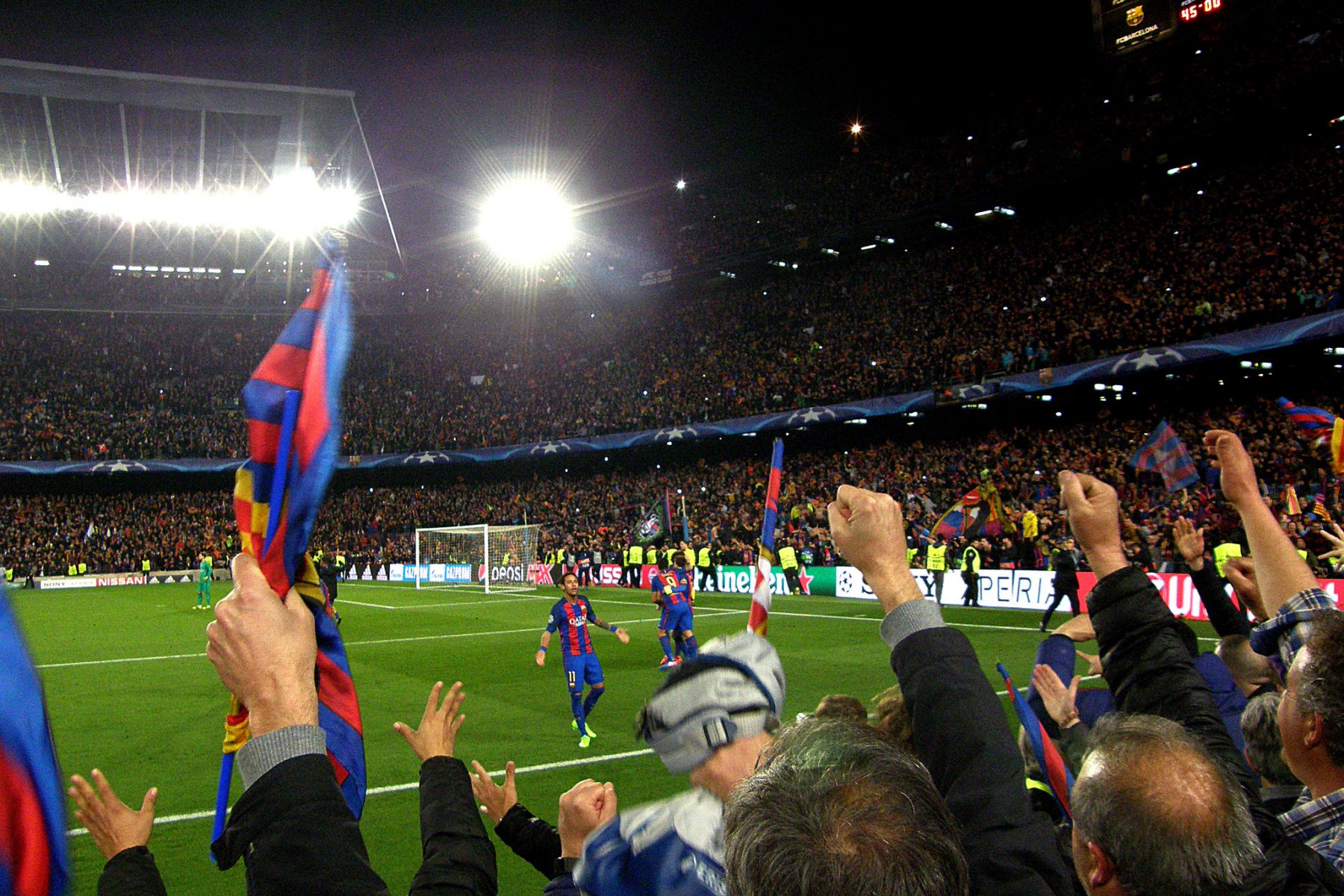What a night in the world of soccer. On Wednesday, F.C. Barcelona actually erased a 4–0 first leg deficit to knock off Paris-Saint Germain 6–1 at home and advance to the Champions League Quarterfinals. No team has ever come back from four goals down in the knockout round of the Champions League, but Barcelona somehow pulled it off. The comeback was almost statistically impossible—three of Barca’s six goals came after the 88th minute, with two coming in injury time.
So what do we make of this unprecedented comeback? Quite simply, it is further evidence that we are all part of a computer simulation.
I know how crazy this sounds, but please hear me out. I’m assuming that most readers have never heard of this theory, so prepare to be enlightened. The idea that all of humanity is living in a computer simulation is a theory that was first borne out of modern philosophy and has since gained traction with many of the world’s foremost thinkers. The dumbed-down version of the theory is that higher-level humans have created a computer simulation in which they have replicated their human ancestors to see how humanity would be affected by various historical events like epidemics and war. The theory also postulates that humans’ creating such a simulation is inevitable, but given that countless other simulations (i.e., universes) would be created, the odds that we are living in the original, founder universe are unfathomably low.
I know that’s a lot of information, but let’s look at all the unexpected (or just plain crazy) events that have happened over the past twelve months: the U.K. voted to leave the E.U., Leicester City won the Premier League (five thousand-to-one odds at the start of the season), the Cleveland Cavaliers came back from 3–1 to win the NBA Finals to upset the 73–9 Warriors (which has never happened in the history of the NBA finals), the Chicago Cubs came back from 3–1 to win their first World Series in 108 years, Donald Trump won the presidency, the Patriots successfully mounted a 25-point Super Bowl comeback (the previous biggest Super Bowl comeback was 10 points), Moonlight claimed the award for Best Picture after La La Land claimed best picture, and now Barcelona. So what do all these events have in common? None of them was supposed to happen, and yet, they all did.
In a recent New Yorker article, Adam Gopnik discussed the crazy finish to this year’s Oscars and puts forth the computer-simulation theory. He goes so far as to say that our world is in fact being controlled by an “adolescent prankster.” Gopnik refers to how all the crazy sports comebacks had the eerie feeling that they were straight out of a video game. For example, many of us are familiar with what it’s like to get crushed 4–0 by a buddy in FIFA, only to turn it right around and destroy your friend 6–1 in a rematch. So, the idea that there is a prankster who finds joy in messing with the odds and who now controls our fate is not entirely unfounded. Barcelona’s comeback can only be further evidence of this.
Let’s look at some of the key conditions that decided Barcelona’s comeback against PSG:
- Barcelona didn’t look its best on Wednesday. PSG’s choice to sit back and let themselves be attacked by the best attacking trio in the world made Barca look much better than they actually were.
- Barcelona got some of the most absurd calls. The officiating was blatantly one-sided (it’s UEFAlona all over again).
- PSG missed multiple wide-open chances that really made you wonder, “how?”
- Barcelona had a seven percent chance of advancing going into the game, with the odds rising as high as 100–1 during the game.
For all of those conditions to come together and amount to Barcelona’s advancing in the Champions League is absolutely mind-boggling. However, if we take into account that an adolescent prankster is controlling our universe, then it makes complete sense. I mean, this is the exact sort of situation a curious, bored teenager would love to mess with to create an absolutely ridiculous outcome. I’ll admit that it’s hard for me to fully accept the idea that we are living in a computer simulation, but after Barcelona’s most recent victory, it’s becoming harder and harder to deny how compelling it is. So, if we do in fact have a teenage overlord governing the world, then we should all become a little more comfortable with expecting the unexpected from this point forward.




